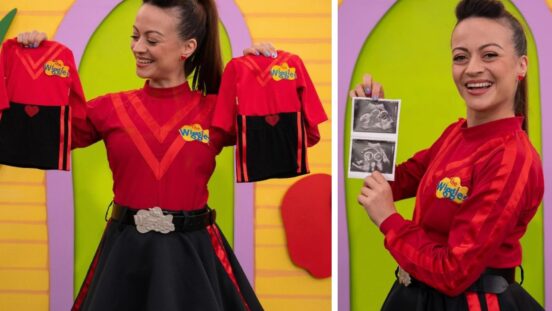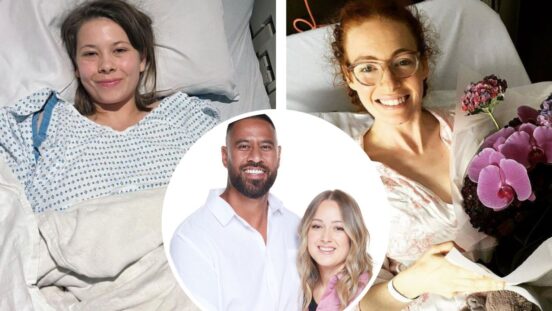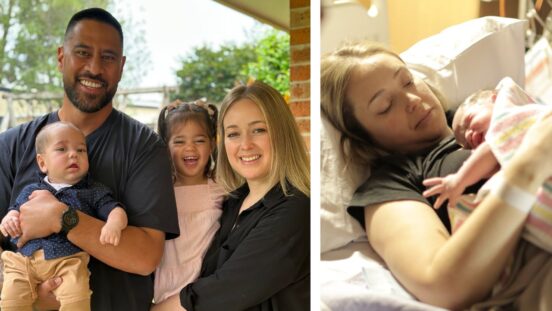The alarming truth about IVF

It's hailed as a reproductive miracle, but your chance of actually delivering a healthy baby are much lower than clinics would have you believe.
There are many reasons women wait before trying for a family. Perhaps it’s societal and they simply don’t meet the right partner, or they choose to wait in order to first focus on their career.
Author of Moving Beyond The Unspoken Grief; a doctors journey as an IVF patient, Sarah Lynn, was in a loving relationship, but both she and her partner were focused on getting medical careers on track. A general practitioner with a special interest in women’s health and pregnancy care, Sarah knew first-hand the implications of waiting to begin a family.
“I would see people who decided to wait and they think ‘I can just freeze my eggs and wait until I find the perfect partner, and then everything will be alright.’ But the thing is, it’s the age and the quality of eggs,” she says. “The older you become, there are other issues that come into the equation too, like how receptive the womb will be.”
“For us, our medical training was really long. Although I was ready sooner, I was working days, and he was working nights. Our biological clocks weren’t matching. We started trying naturally when I was 30, but after a couple of years when it wasn’t happening, we realised we needed to get help,” tells Sarah.
Sarah found it harder and harder to continue with her work in antenatal shared care. Helping mothers face decisions about unplanned pregnancy became too hard and she changed careers.
“Whilst we were trying to conceive, each failed attempt took a hard emotional toll on myself, and working in the sexual health and unplanned pregnancy field was too hard,” she says. “We took a year off (IVF) to focus on the relationship. I had gained a lot of weight due to medications, my husband and I were stressed, so we decided to mend the relationship and we would start again when the time was right.”
Sarah eventually fell pregnant and now has a two-year-old and another on the way, but the journey has not been easy.
IVF is a wonderful technology that gives women who would otherwise be unable to conceive the opportunity to have a baby, but what many women don’t know is that their chance of falling pregnant this way are less than half. In fact, for women under 30, it is around 42 per cent.
For women over 40, that figure drops to only eight per cent.
Celeste Ferraris waited nine years for her partner to be ready for a child. They eventually separated, and she began IVF on her own.
“The physical examinations showed that I was very healthy and my body could successfully carry a pregnancy through to full term, but the anti-mullerian hormone test was extremely low, indicating that I didn't have many eggs left. After looking into the percentage success rates of a 38-year-old with a low reserve, I saw that it would be near impossible,” she says.
Celeste decided not to undergo IVF but after an accidental natural pregnancy, which resulted in a miscarriage, Celeste realised that she wanted to give having a child her best shot using donor sperm.
“I went through three cycles and that took approximately 15 months. Given my low egg reserve and age, the first cycle was very successful. Only six eggs were harvested (that was to be expected) but what they didn't expect was that four embryos would form. That is highly unusual statistically. To get one embryo I was told that they normally need about 11 or 12 eggs. From the four embryos, three implantations occurred, all of which miscarried,” she tells.
Celeste decided to stop the process at 42, and although the yoga teacher is happy with her life, there is still a sadness that she will not have a family of her own.
“It has been three years since I stopped IVF and there have been moments when grief over not having children and not being a mother overwhelms me and I break down and sob. The triggers for this usually take me by surprise and are not necessarily linked to a child or motherhood, but all of a sudden I realise why I’m crying and I let the flood of sadness out.”
The reality of IVF is that it’s a numbers game and fertility specialist, David Knight of Demeter Fertility, knows the odds intimately.
“Basically, IVF depends on how often someone produces an egg that’s good enough to make a baby. For someone in their early 20s, they may make an egg good enough to make a baby every month or two months, but by the time they reach their 40s, they probably only make an egg good enough to make a baby once a year,” he says.
“The problem then is if they do an IVF cycle in a month where the best egg isn’t good enough to make a baby, we don’t have the technology currently to change that. That is kind of the bottom line.”
We also don’t have the technology to know if the egg is good enough to make a baby, so the only thing we can do is try each month. This is why many women undergo multiple cycles over many months and still do not have success.
“It’s an odds game,” says David. “This is where the IVF industry doesn’t really portray the most accurate way of doing that.”
“It is not about how many embryos you put back, but it’s about how many embryos you put back with the best egg from a particular month. There is a misconception that the more eggs you have the more shots you have, but it’s not the case, because it’s not like buying a box of eggs from IGA,” he says.
When you ovulate naturally, your body releases the best egg, but when you undergo IVF, they take all of the eggs whether they‘re good or not. This doesn’t necessarily increase the chances of a thriving embryo.
It is irrefutable that IVF helps thousands of people to have the families they desire but truth of the matter is, no matter how miraculous it is for some, for many others the odds against them will be too great.




